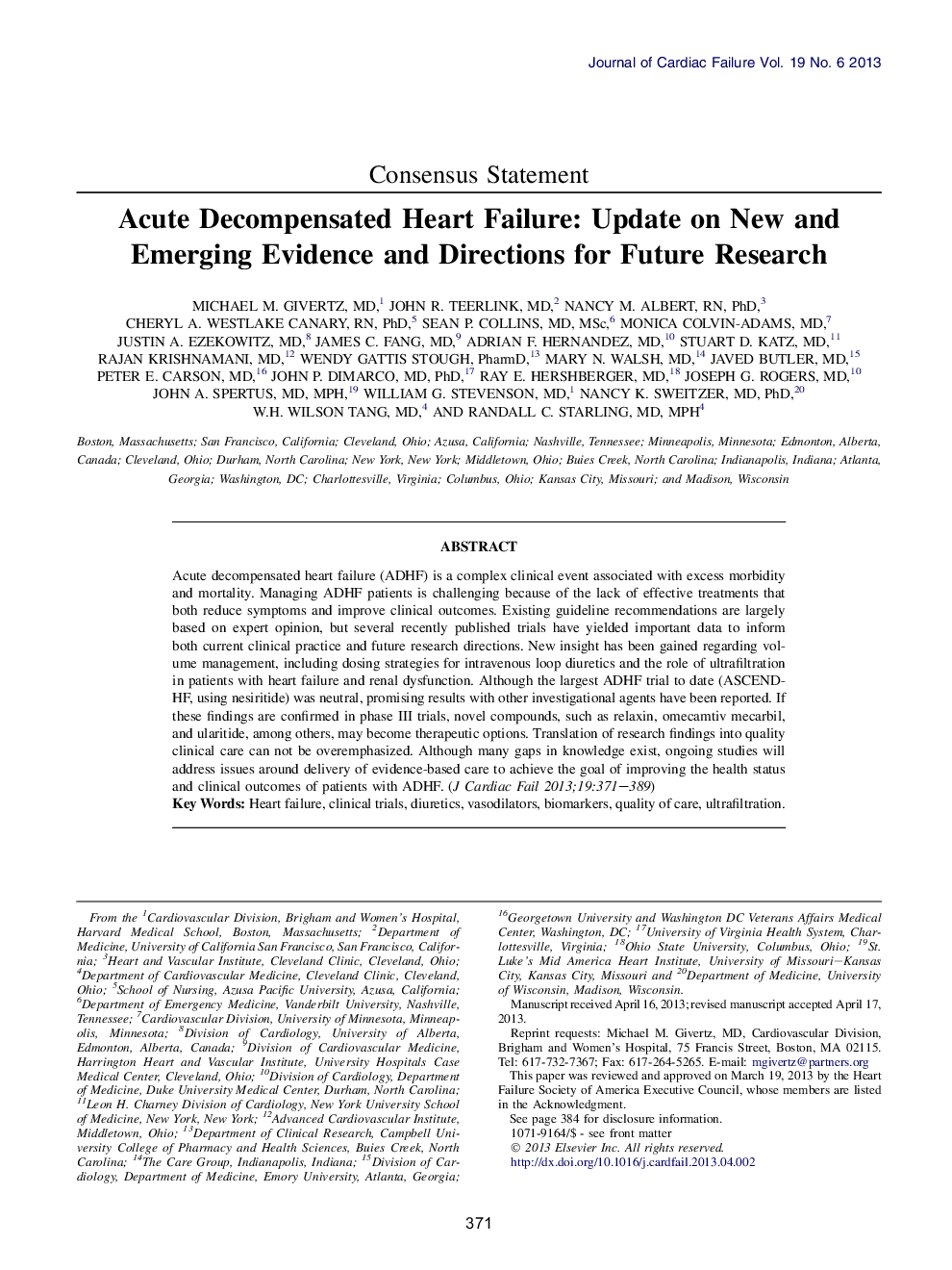| Article ID | Journal | Published Year | Pages | File Type |
|---|---|---|---|---|
| 2960136 | Journal of Cardiac Failure | 2013 | 19 Pages |
Acute decompensated heart failure (ADHF) is a complex clinical event associated with excess morbidity and mortality. Managing ADHF patients is challenging because of the lack of effective treatments that both reduce symptoms and improve clinical outcomes. Existing guideline recommendations are largely based on expert opinion, but several recently published trials have yielded important data to inform both current clinical practice and future research directions. New insight has been gained regarding volume management, including dosing strategies for intravenous loop diuretics and the role of ultrafiltration in patients with heart failure and renal dysfunction. Although the largest ADHF trial to date (ASCEND-HF, using nesiritide) was neutral, promising results with other investigational agents have been reported. If these findings are confirmed in phase III trials, novel compounds, such as relaxin, omecamtiv mecarbil, and ularitide, among others, may become therapeutic options. Translation of research findings into quality clinical care can not be overemphasized. Although many gaps in knowledge exist, ongoing studies will address issues around delivery of evidence-based care to achieve the goal of improving the health status and clinical outcomes of patients with ADHF.
